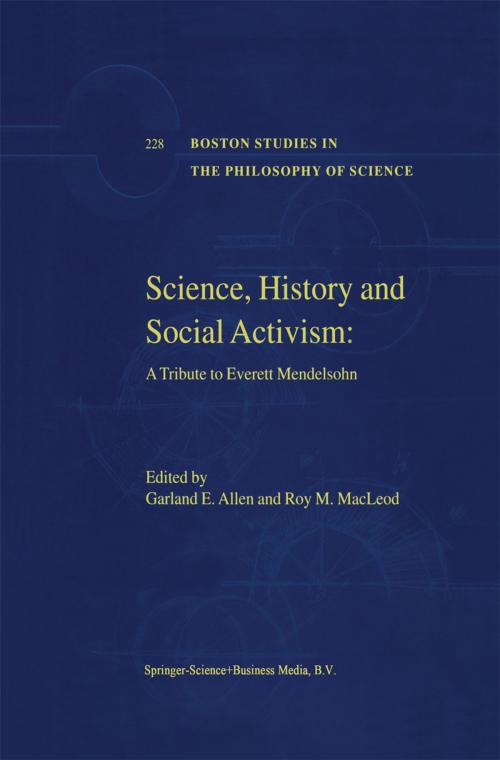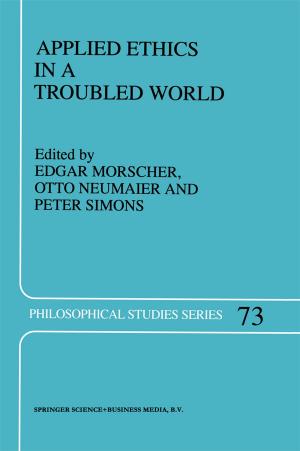Science, History and Social Activism
A Tribute to Everett Mendelsohn
Nonfiction, Religion & Spirituality, Philosophy, Reference, Ethics & Moral Philosophy, History| Author: | ISBN: | 9789401729567 | |
| Publisher: | Springer Netherlands | Publication: | March 14, 2013 |
| Imprint: | Springer | Language: | English |
| Author: | |
| ISBN: | 9789401729567 |
| Publisher: | Springer Netherlands |
| Publication: | March 14, 2013 |
| Imprint: | Springer |
| Language: | English |
"To earn a degree, every doctoral candidate should go out to Harvard Square, find an audience, and explain his [or her] dissertation". Everett Mendelsohn's worldly advice to successive generations of students, whether apocryphal or real, has for over forty years spoken both to the essence of his scholarship, and to the role of the scholar. Possibly no one has done more to establish the history of the life sciences as a recognized university discipline in the United States, and to inspire a critical concern for the ways in which science and technology operate as central features of Western society. This book is both an act of homage and of commemoration to Professor Mendelsohn on his 70th birthday. As befits its subject, the work it presents is original, comparative, wide-ranging, and new. Since 1960, Everett Mendelsohn has been identified with Harvard Univer sity, and with its Department of the History of Science. Those that know him as a teacher, will also know him as a scholar. In 1968, he began- and after 30 years, has just bequeathed to others - the editorship of the Journal of the History of Biology, among the earliest and one of the most important publications in its field. At the same time, he has been a pioneer in the social history and sociology of science. He has formed particularly close working relationships with colleagues in Sweden and Germany - as witnessed by his editorial presence in the Sociology of Science Yearbook.
"To earn a degree, every doctoral candidate should go out to Harvard Square, find an audience, and explain his [or her] dissertation". Everett Mendelsohn's worldly advice to successive generations of students, whether apocryphal or real, has for over forty years spoken both to the essence of his scholarship, and to the role of the scholar. Possibly no one has done more to establish the history of the life sciences as a recognized university discipline in the United States, and to inspire a critical concern for the ways in which science and technology operate as central features of Western society. This book is both an act of homage and of commemoration to Professor Mendelsohn on his 70th birthday. As befits its subject, the work it presents is original, comparative, wide-ranging, and new. Since 1960, Everett Mendelsohn has been identified with Harvard Univer sity, and with its Department of the History of Science. Those that know him as a teacher, will also know him as a scholar. In 1968, he began- and after 30 years, has just bequeathed to others - the editorship of the Journal of the History of Biology, among the earliest and one of the most important publications in its field. At the same time, he has been a pioneer in the social history and sociology of science. He has formed particularly close working relationships with colleagues in Sweden and Germany - as witnessed by his editorial presence in the Sociology of Science Yearbook.















